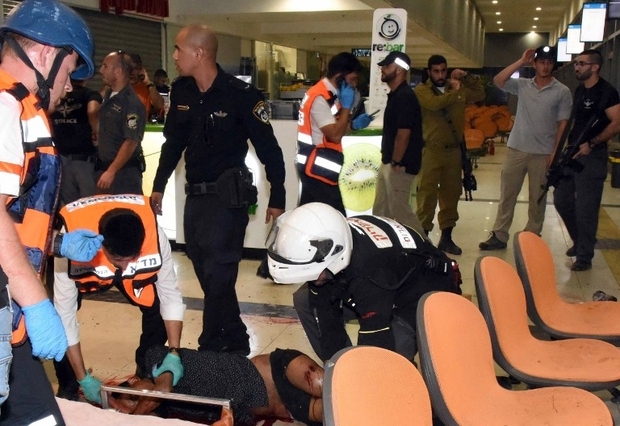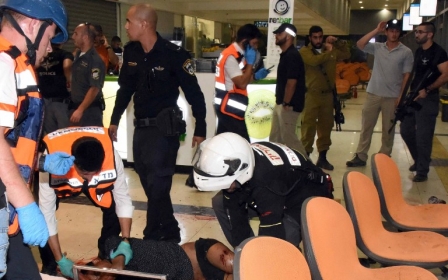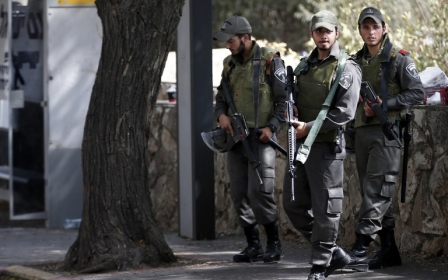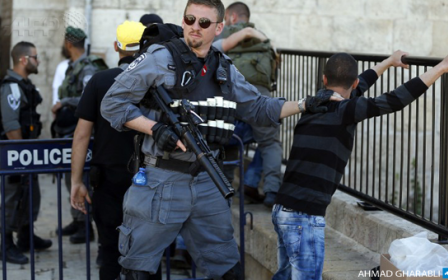Israeli man sentenced to community service over death of asylum seeker

An Israeli man who took part in a mob attack on an Eritrean asylum seeker, resulting in his death, was sentenced to just 100 days of community service on Wednesday, sparking outrage on social media.
Haftom Zarhum, 29, an Eritrean asylum seeker, was attacked by a crowd of Israelis in November 2015 after a gunman shot dead 19-year-old Israeli soldier Omri Levi in the central bus station in Beersheba and wounded around ten others.
Zarhum was shot by a security guard who mistook him for a second attacker before 33-year-old David Moyal beat him, and three others, who punched him, kicked him in the head and forcefully dropped a bench on top of him before leaving him in a pool of his blood.
Zarhum was taken to the hospital and later announced dead, with the autopsy revealing the main cause of his death being gunshot wounds.
Widely described at the time as a lynching, the attack saw Moyal slamming Zarhum with a bench. Two other men continued to beat the asylum seeker, who was thought to have been returning home after collecting visa papers.
Moyal will be on probation for eight months and has been ordered to pay the family of the victim around $550. Video images emerged following the attack, showing the bloody victim lying in the street and being kicked by passers-by.
The sentence of 100 days of community service has caused outrage amongst social media users, who highlighted how Israeli civilians often get off crimes with lighter sentences.
The remaining defendants, Evyatar Damari, Ronen Cohen and Yaakov Shamba are still on trial for the more severe charge of “aggravated battery”.
A report submitted by the prosecution states that the sentence issued by Beersheba District Council was for “abuse of a defenceless person” rather than “aggravated assault”, which is a charge that can carry up to 20 years in prison.
According to reports, the sentence gave following findings that showed that the bullets fired by the security guard were the cause of Zarhum’s death, rather than as a direct result of the beatings. The security guard was not charged in the case.
Zarhum’s family are suing Israeli Police, the bus station’s security and the others involved in the mob attack for $780,00 (3 million Shekels) in damages, according to the Jewish Telegraphic Agency.
Some users compared the “injustice” of the sentence to the case of Ahed Tamimi, the 17-year-old filmed slapping an Israeli soldier.
Tamimi was arrested in December 2017 and sentenced to eight months in prison at a closed-door hearing at Israel’s Ofer military court near Ramallah. The military prosecution stated Tamimi was pleading guilty to four charges; including two accounts of obstructing soldiers, assault and incitement. Tamimi’s lawyer, Gaby Lasky, said that Tamimi would also fined $I,500.
On Twitter, people have called out the injustices faced by Palestinians under Israel’s military courts, which they believe is rooted in a decades-long process of discrimination.
Ben White, author and expert on the Israel-Palestine conflict, described the Israeli government as being responsible for “institutionalised discrimination against Palestinians”.
The Association for Civil Rights in Israel also states that “the right to equality is not yet enshrined in laws regarding most aspects of life” and that “prejudice and discrimination still run rampant throughout Israeli society”.
Human Rights Watch claimed that “as of October 2017, Israel held 453 Palestinian administrative detainees without charge or trial, based on secret evidence, many for prolonged periods”.
Israel has previously come under scrutiny for its dual legal system, where there are two systems of law enforced within a single territory. Palestinian residents come under the military court system whereas Israeli citizens (including Palestinian citizens of Israel) come under a civilian legal system.
Stay informed with MEE's newsletters
Sign up to get the latest alerts, insights and analysis, starting with Turkey Unpacked
Middle East Eye delivers independent and unrivalled coverage and analysis of the Middle East, North Africa and beyond. To learn more about republishing this content and the associated fees, please fill out this form. More about MEE can be found here.





